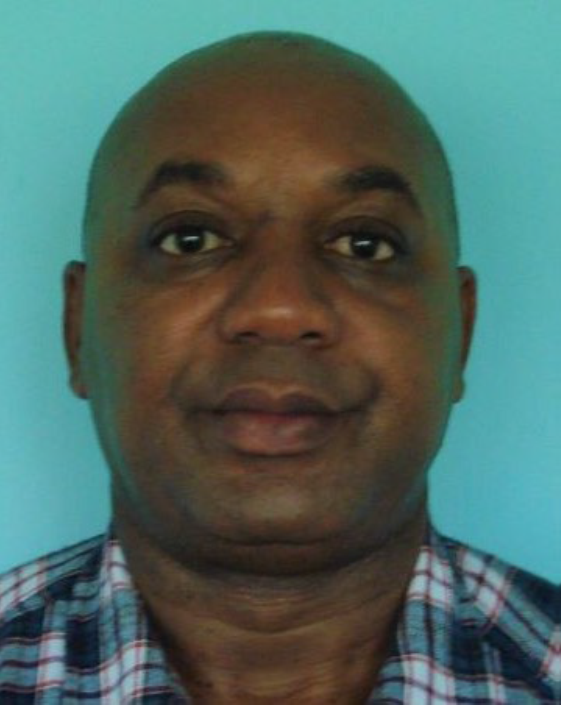
Name:RICHARD LYAMUYA
Email:richard.lyamuya@tawiri.or.tz
Institutions:Tanzania Wildlife Research Institute
Autobiography
Dr. Richard Daniel Lyamuya is a Tanzanian boy born in Kilimanjaro Region. Currently, he is the Principal Research Officer who has worked with the Tanzania Wildlife Research Institute (TAWIRI) for at least 24 years. He was employed by (TAWIRI) in 1999 as a Research Assistant after completing his Diploma in Wildlife Management at Mweka Wildlife Management College. He was stationed at the Serengeti Wildlife Research Centre (SWRC) in the Serengeti National Park. He then studied for his BSc. degree at the University of Dar-es-Salaam from 2001 to 2004 where he was awarded a BSc. degree in Zoology and Wildlife Ecology. Currently, he is working at TAWIRI Head Quarter with the Research Development and Promotion Section under the Directorate of Research. Dr. Lyamuya has worked with various research projects within and outside the Serengeti ecosystem such as the Biodiversity and Human-Wildlife Interface Project from 2000 to 2005. In this project, he did a ground census survey of large mammals along the different protected areas within the Serengeti ecosystem through using of the vehicle and distance sampling technique. He also worked as the botanist of the project to determine the biodiversity of the flora in the area. Dr. Lyamuya worked with the Norwegian Institute for Nature Research (NINA) and the Norwegian University of Science and Technology (NTNU) as a Research Assistant from 2006 to 2007 under the Fredskorpset program. (www.ntnu.no , www.nina.no , www.fredskorpset.no). He has also worked with the African Wild Dogs Conservation Project from 2007 to 2009 as the project leader and scientist. In this project, he worked with the pastoralists Maasai in the Loliondo Game Controlled Area and Ngorongoro Conservation Area to investigate the extent of the livestock depredation caused by large carnivores with a special focus on the African wild dogs in their area. Dr. Lyamuya used these data for his MSc. and PhD studies at the Norwegian University of Science and Technology (NTNU) from 2009 to 2011 and again from 2014 to 2017 respectively when he was awarded his PhD in Conservation Biology in 2017 titled "Depredation of livestock by wild carnivores in the eastern Serengeti Ecosystem, Tanzania''. Also, he has worked with the IPBES project from 2013 to 2015 within the Serengeti ecosystem. In this project, he worked with the biodiversity research teams of both botany and large mammals along the proposed construction of the tarmac road through the eastern and northern Serengeti ecosystem. The data from this project were used to write the Book titled "The Northern Serengeti Road Ecology" whereby Dr. Lyamuya authored and co-authored some of the book chapters. He also worked with the Tanzania Carnivores Census Project in 2014 to determine their current population status and threats in different protected areas of Tanzania especially the Selous Game Reserve. In 2015, Dr. Lyamuya worked with the Serengeti Roadkill Project as Principal Investigator and published several papers in peer-reviewed journals. Again, Dr. Lyamuya has worked with the ABIOSERVICES project from 2016 to 2019 in the Serengeti Ecosystem. In this project, he also worked with both botany and mammals research groups and he participated in publishing several research papers. Dr. Lyamuya participated in assessing the Ngorongoro Rangeland Health in 2020 by looking at the ecological impact of small stock grazing on the rangelands of the NCA and its implication for the sustainable conservation of wild grazers. In 2020, Dr. Lyamuya worked again with the biodiversity surveys (mammals and plants) in the Lake Manyara - Natron Ecosystem. Moreover, has worked with the "Resilient Natural Resource Management for Tourism and Growth (REGROW) project" which aimed at enhancing tourism in southern national parks. In this project, Dr. Lyamuya has participated in the ground wildlife surveys in Ruaha, Mikumi, Udzungwa, and Nyerere national parks. Furthermore, Dr. Lyamuya has worked with the Ngorongoro Range Care Project from 2023 to date assessing the level of both native and alien invasive plant species spread within the Ngorongoro rangelands and Pololeti Game Reserve and applying new innovative technologies for their control. From 2023 to 2024 Dr. Lyamuya participated in the assessment of the biodiversity status of the Arusha environmental research reserve at Agakhan University (AKU). In this biodiversity monitoring project, he worked as a plant ecologist and botanist. This year 2024 also, Dr. Lyamuya has worked with the Biodiversity Research Team from FAO and the Vice President Office in assessing the current biodiversity status of large mammals in four selected wetland areas including the Lake Natron, Mara River Basin, Kilombero Valley, and Malagarasi. Again, in 2024, Dr. Lyamuya worked with scientists from Soils for the Future, Tanzania, and Biodiversity Research Institute (BRI) from the USA to assess the current biodiversity status of plants especially the grazing resources for both wildlife and livestock in Longido and Monduli Districts rangelands to help communities of the areas to sell carbon credits, reducing adverse impacts of global climate change as well as improving their livelihood. Through working on different research projects both national and international, Dr. Lyamuya learned a lot about teamwork and leadership skills. Apart from the research field works, Dr. Lyamuya has participated in publishing currently about 20 peer-reviewed papers, 13 conference papers, and 7 technical reports and has written about 8 book chapters. This year 2024, Dr. Lyamuya and his colleagues are expecting to publish a book titled “Biodiversity of the Coastal Forests of Eastern Africa” where he has written several chapters. He interestingly prefers to work in Plant & animal ecology, Human-wildlife interactions/conflicts/coexistence, Biodiversity monitoring and conservation, Conservation biology, Climate change mitigation, and Rangeland management and restoration to safeguard our natural environment and those of the local community for the sake benefits of current and future generations.
Research Project
| Sn | Research Title |
|---|---|
| Not Found | |
 Nwris
Nwris